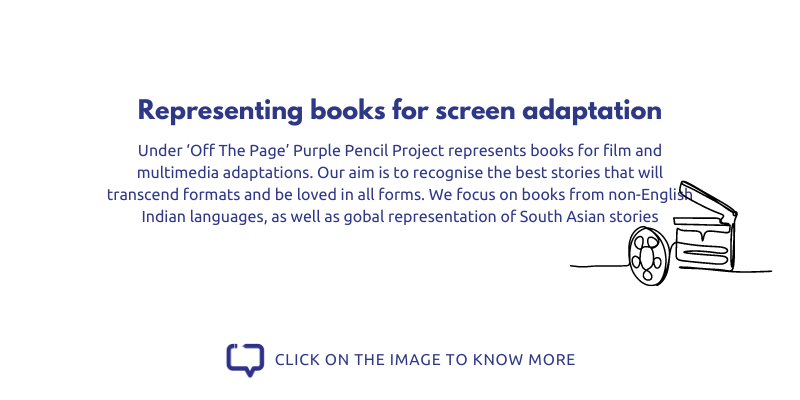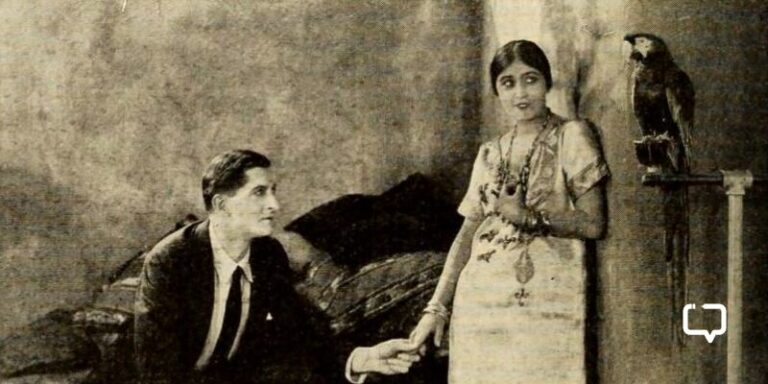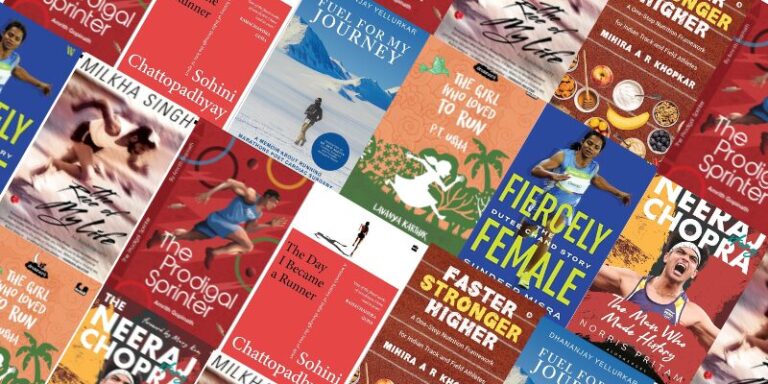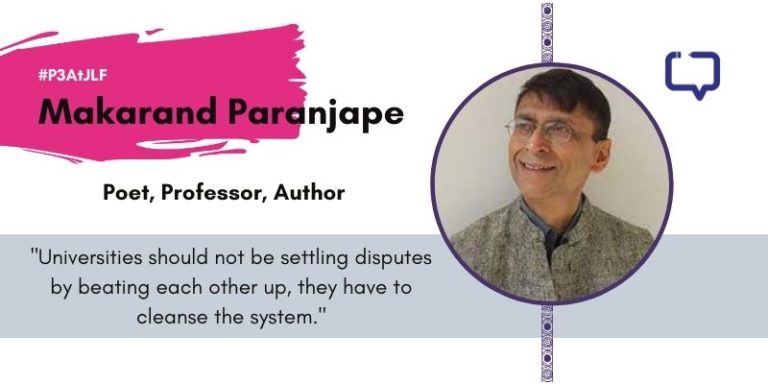Team P3 interacted with Kai Bird at the Jaipur Literature Festival 2024.
We had a chat with Kai Bird, the bestselling author of The American Prometheus (co-written with Martin J. Sherwin) and The Outlier, at the Jaipur Literature Festival 2024. Some excerpts:
We’ll start with your experience at JLF. You’ve been here quite a few times…
Kai Bird: This is my fourth Jaipur Literature Festival.
Team P3: … is there a difference in the reception you’ve gotten here after the release of this very popular movie?
Kai Bird: American Prometheus came out 18 years ago, and it got good reviews, but it sold modestly. It’s a long book, 480 pages with 100 plus pages of footnotes. So it was a surprise when the film came out. Suddenly everyone wanted to know more about the book not only here in India, but in America, in France.
We encourage you to buy books from a local bookstore. If that is not possible, please use the links on the page and support us. Thank you.
There’s a new French edition, there’s new Portuguese editions, Spanish editions, it’s quite extraordinary. It’s an important story, and I was surprised that young people flocked to see this movie. But this amazing film is a teaching moment, it’s a film that teaches you to be curious about the human race in the atomic age.
Team P3: You’ve written extensively about American politics and bureaucracy throughout your career, even while looking at personal journeys. What fascinates you the most about these machinations?
Kai Bird: Well, I choose my subjects very carefully because I have to live with these projects for a long time. An average biography takes maybe 5 years, sometimes much longer. And I choose subjects that I’m personally fascinated by. There’s a common theme, I guess, most of my books are about American political figures that explain how power works and our democracy.
I chose to write about George Buddy, not a well-known personality, but I chose him because he is a national security advisor and to tell his story as the architect of the war in Vietnam. I was curious how such a great, smart, influential, Harvard alumni would have gotten America into this endless war in Vietnam. Likewise, Oppenheimer, because he’s endlessly fascinating: his personal life, politics, marriage.
Team P3: You’ve worked closely with the Oppenheimer adaptation, which, as a fan of the book, I was enamored by. At the same time, the movie’s relatively less personal, with almost nothing about his childhood, and more political than the book is. Were there any complaints in that department? Did you wish to do something different than Nolan eventually did?

Kai Bird: No, I really like the choices that Christopher Nolan made in his film. He captures Oppenheimer’s personality and his insecurities, and he tells the important parts of the story. And it was also important that we focused on the trial. You’re right: there’s nothing about his childhood. But it’s a long movie. You can’t cover everything but what he chose to cover was important.
When I was writing the book with Martin Sherwin, he turned to me and said, “We wouldn’t be working all these years for this book if this was just a story of an atomic bomb.”
What really makes this story interesting and a mystery is that in 1945, Americans were celebrating Oppenheimer, and nine years later, he was dropped down, demeaned, and destroyed. Both Marty and I were curious to know how that happened and why. That is the story and art, from triumph to tragedy.
Team P3: Adding to the last question, how do you think the visual narrative of the movie added to the book?
Kai Bird: The film is a completely different artistic creation. What Nolan has done (is that) he’s adapted the book, but in the process, there’s a completely different (outcome). It’s his own creation, it’s his own film, and I think it’s very hard to do that. Most adaptations of books fall flat. It’s very hard to be both creative and faithful to the book. And the visual medium is very different, but I celebrate Nolan’s achievement.

Team P3: Do you think the book, and now the movie, plays a part in changing the perception of the man?
Kai Bird: Oh yes, I think, before the movie came out, and before American Prometheus came out in 2005, most people knew Oppenheimer as a scientist, or by virtue of him as the father of the Atomic Bomb, but that’s about it. But the book is a major attempt in terms of humanising him, demythologising this historically iconic figure, and making him a person with doubts and struggles.
The book does that in 720 pages, and Nolan does the same thing in 3 hours. When people are gonna see the film, it’s his life story: set aside the politics, set aside the atomic bomb. His personality, his struggles as a young man, as a young scientist, it’s an interesting story that a lot of people will identify with.
To wrap it up, what are you reading right now? What are you working on right now?
Kai Bird: I’m about to read a brand-new biography of Frantz Fanon. He explains his life story, he’s a psychologist and philosopher, he wrote The Wretched of the Earth which explains revolutionary violence and the tragic human losses, I haven’t begun it.
The author is a great biographer named Adam Shatz. But I’m also having to read a lot of books about Ray Cohn, my next subject, that I have been researching for a little more than a year and that involves a lot of old newspapers, archival documents, and FBI files, it’s a different kind of reading.




















